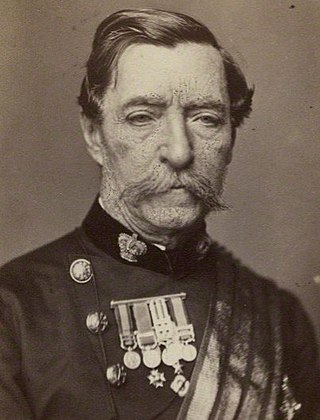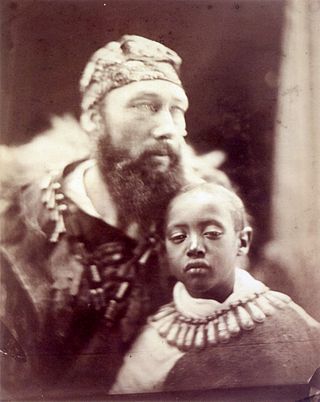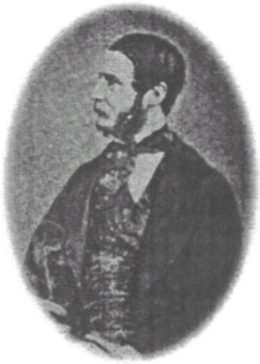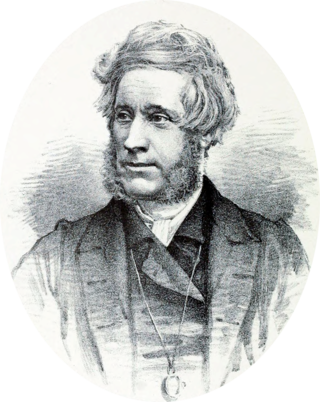
Field Marshal Robert Cornelis Napier, 1st Baron Napier of Magdala was a British Indian Army officer. He fought in the First Anglo-Sikh War and the Second Anglo-Sikh War before seeing action as chief engineer during the second relief of Lucknow in March 1858 during the Indian Rebellion of 1857. He also served in the Second Opium War as commander of the 2nd division of the expeditionary force which took part in the Battle of Taku Forts, the surrender of Peking's Anting Gate and the entry to Peking in 1860. He subsequently led the punitive expedition to Abyssinia in July 1867, defeating the Emperor Tewodros II of Ethiopia with minimal loss of life among his own forces and rescuing the hostages of Tewodros.

General Sir Charles John Stanley Gough, was a senior British Indian Army officer and a recipient of the Victoria Cross, the highest award for gallantry in the face of the enemy that can be awarded to British and Commonwealth forces.

Lieutenant General Sir Henry Marshman Havelock-Allan, 1st Baronet was a British soldier and politician. 'Allan' in the surname was added in March 1880.

General Sir William Olpherts was a British Indian Army officer and an Irish recipient of the Victoria Cross, the highest award for gallantry in the face of the enemy that can be awarded to British and Commonwealth forces.

Field Marshal Hugh Henry Rose, 1st Baron Strathnairn, was a senior British Army officer. He served as a military adviser to the Ottoman Army who were seeking to secure the expulsion of the forces of Mehemet Ali from Syria during the Egyptian–Ottoman War. He then fought with the French Army at the Battle of Alma, the Battle of Inkerman and at the Battle of Mamelon during the Crimean War. During the Indian Rebellion of 1857 Rose was given command of the Central Indian Field Force and was successful at the battle of Jhansi in April 1858, at Lahar in May 1858 and at Gwalior in June 1858. He went on to be Commander of the Bombay Army, Commander-in-Chief, India and then Commander-in-Chief, Ireland.

Field Marshal William Gustavus Nicholson, 1st Baron Nicholson, was a British Army officer who served in the Second Anglo-Afghan War, the Mahdist War, the Third Anglo-Burmese War, the Second Boer War and the First World War. He became Chief of the Imperial General Staff and was closely involved in the reorganisation of the British Army in the early years of the 20th century.

Lieutenant-General Sir James Outram, 1st Baronet was a British general who fought in the Indian Rebellion of 1857.

Tweedie or Tweedy is a Scottish clan name. The Clan Tweedie does not currently have a chief recognized by the Lord Lyon King of Arms and is therefore considered an Armigerous clan. However the surname is also considered a sept of the Clan Fraser. The name is derived from the lands of Tweedie which were along the Valley of the River Tweed in Peebleshire in the Scottish Borders.
The Central India Campaign was one of the last series of actions in the Indian rebellion of 1857. The British Army and Bombay Army overcame a disunited collection of states in a single rapid campaign, although determined rebels continued a guerrilla campaign until the spring of 1859.

4th Horse (Hodson's Horse) is a part of the Armoured Corps of the Indian Army, which had its beginnings as an irregular cavalry regiment during the time of the Indian Rebellion of 1857.

Tristram Charles Sawyer Speedy was a well-known English explorer and adventurer during the Victorian era.
William Hutt Curzon Wyllie was a British Indian army officer, and later an official of the British Indian Government. Over a career spanning three decades, Curzon Wyllie rose to be a Lieutenant Colonel in the British Indian Army and occupied a number of administrative and diplomatic posts. He was the British resident to Nepal and the Princely state of Rajputana, and later, the political aide-de-camp to the Secretary of State for India, Lord George Hamilton. Curzon Wyllie was assassinated on 1 July 1909 in London by the Indian revolutionary Madan Lal Dhingra, who was a member of India House in London.

The Central India Horse was a regular cavalry regiment of the British Indian Army and is presently part of the Indian Army Armoured Corps.

James Atkinson was a surgeon, artist and Persian scholar — "a Renaissance man among Anglo-Indians".
General Sir George Malcolm was an officer in the Bombay Army and British East India Company.

Lieutenant-Colonel William Morris was a British Army officer who rode in the Charge of the Light Brigade.

Dr Alexander Tweedie FRS was a Scottish physician and writer.
The 1866 Birthday Honours were appointments by Queen Victoria to various orders and honours to reward and highlight good works by citizens of the British Empire. The appointments were made to celebrate the official birthday of the Queen, and were published in The London Gazette on 25 May and 29 May 1866.

General Sir John Low was a Scottish officer army officer and political administrator in the service of the British East India Company.

William King Tweedie (1803–1863) was an historian, biographer and a minister of the Free Church of Scotland Tolbooth Church, Edinburgh.














